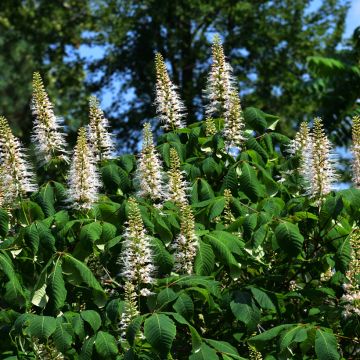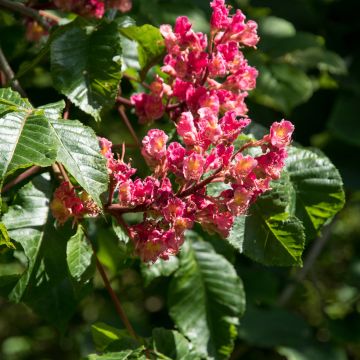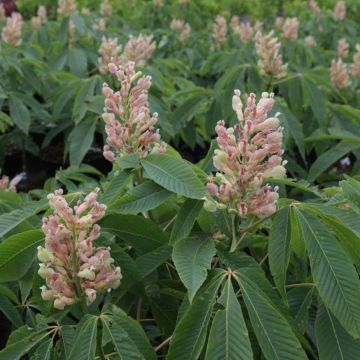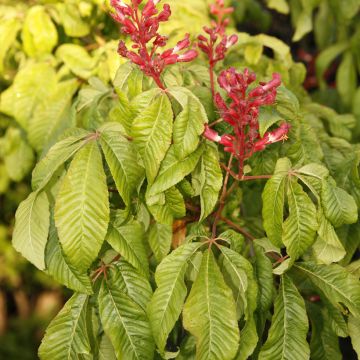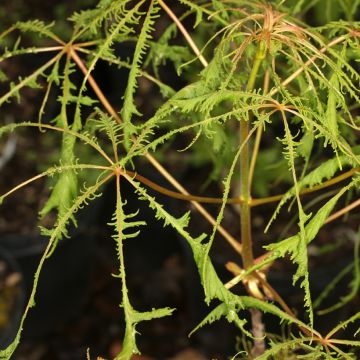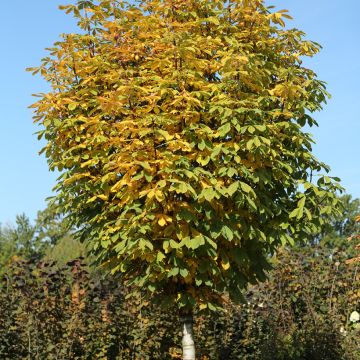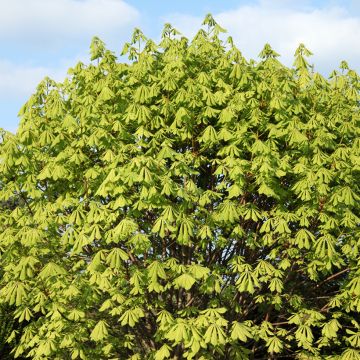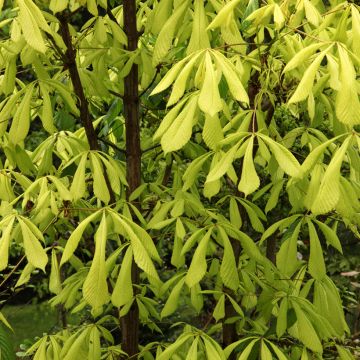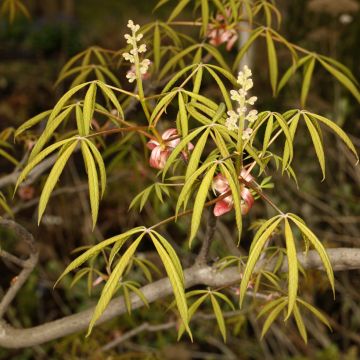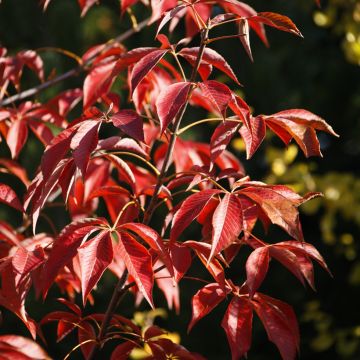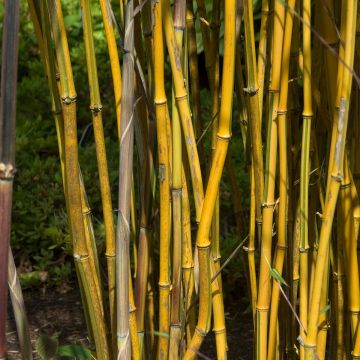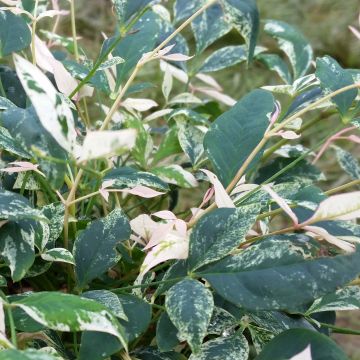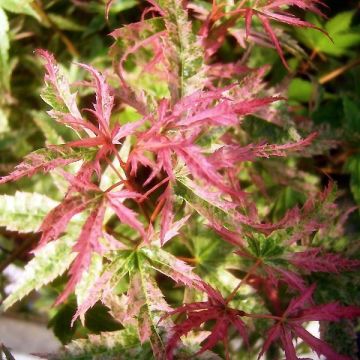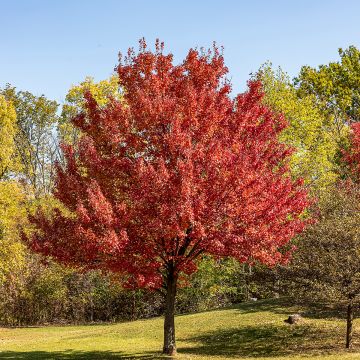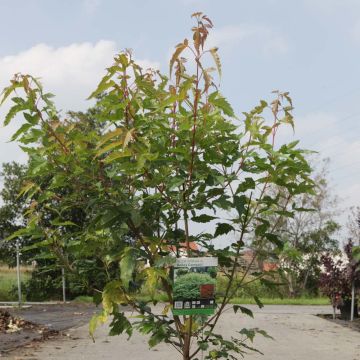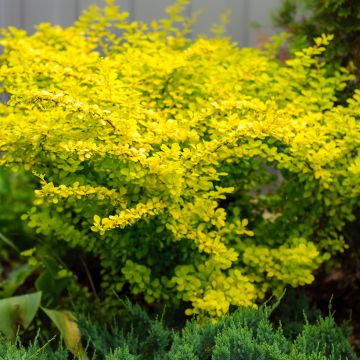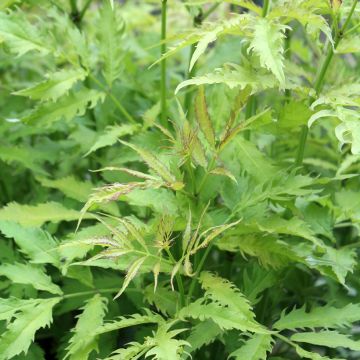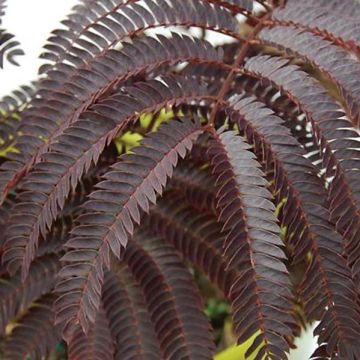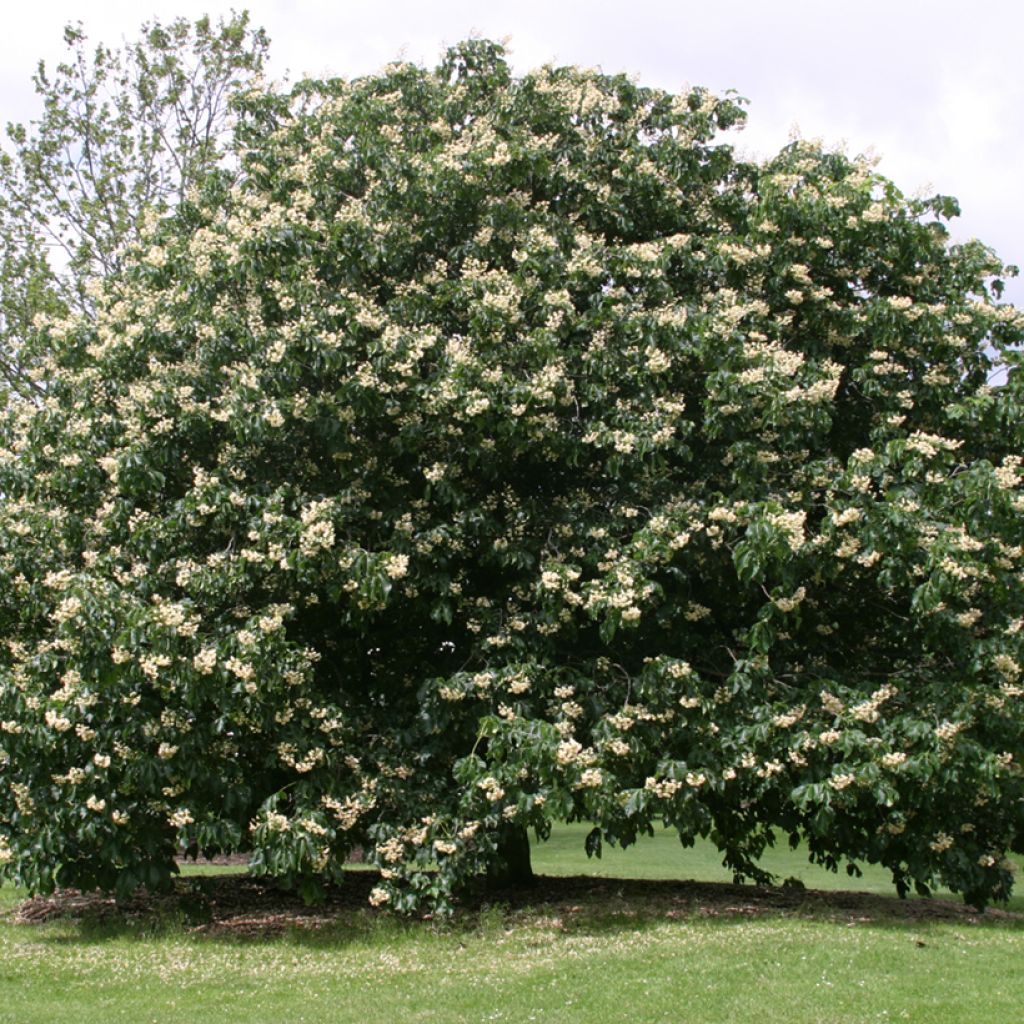

Aesculus Dallimorei - Dallimore horse-chestnut
Aesculus Dallimorei - Dallimore horse-chestnut
Aesculus hippocastanum + flava
Dallimore horse-chestnut, Horse Chestnut, Yellow Buckeye
Special offer!
Receive a €20 voucher for any order over €90 (excluding delivery costs, credit notes, and plastic-free options)!
1- Add your favorite plants to your cart.
2- Once you have reached €90, confirm your order (you can even choose the delivery date!).
3- As soon as your order is shipped, you will receive an email containing your voucher code, valid for 3 months (90 days).
Your voucher is unique and can only be used once, for any order with a minimum value of €20, excluding delivery costs.
Can be combined with other current offers, non-divisible and non-refundable.
Home or relay delivery (depending on size and destination)
Schedule delivery date,
and select date in basket
This plant carries a 24 months recovery warranty
More information
We guarantee the quality of our plants for a full growing cycle, and will replace at our expense any plant that fails to recover under normal climatic and planting conditions.
Would this plant suit my garden?
Set up your Plantfit profile →
Description
Aesculus Dallimorei, commonly known as Dallimore's Horse Chestnut, is a rare ornamental tree in cultivation, sought after for its beautiful spring flowers, wide crown, and attractive palmate foliage. This tree is a graft chimera rather than a hybrid, combining the characteristics of the Horse Chestnut with those of the American Yellow Buckeye, Aesculus flava. It will make a unique addition to the garden of a rare plant enthusiast.
Aesculus Dallimorei, also known as Aesculus + dallimorei, is a chimera resulting from the grafting of tissues from Aesculus hippocastanum (the Horse Chestnut) and A. flava (the Yellow Buckeye), or sometimes A. pavia (the Red Buckeye), according to sources. William Dallimore observed that a yellow buckeye growing near his house in Bidborough, Kent, bore a branch that, with its leaves and flowers, resembled the common Horse Chestnut; the tree was grafted and the branch in question was born from the union of a rootstock and a scion. This botanical curiosity was described in 1956. This horse chestnut belongs, like its parents, to the family Hippocastanaceae.
Dallimore's Horse Chestnut can reach a height of 6 to 10 m, forming a short trunk and a dense, spherical crown that will spread 4 to 6 m wide. Its deciduous foliage is composed of 5 to 7 palmate leaflets, arranged in a fan shape, and measuring between 15 and 30 centimetres long. The leaves do not exactly resemble those of each parent plant, particularly due to the shape of the leaflets. The leaflets are broadly elliptical and pointed, slightly wrinkled, dark green on the upper side, with a white down on the underside. In autumn, they turn yellow-brown before falling. Flowering occurs in May-June. The flower colour can vary depending on sources and clones, ranging from creamy white with a red spot at the base to red, pink, or orange. Individually, the flowers have four petals arranged in two different pairs, with the lower pair shorter but wider than the upper pair. In the Horse Chestnut, the petals number five and are all the same size. They appear in upright panicles of 20-25 cm and are highly attractive to pollinating insects. This tree is sterile and generally does not produce viable fruits.
Aesculus Dallimorei is a collectible tree that deserves to be showcased in a large garden. This horse chestnut is hardy (-20°C) and easy to grow in loose, well-drained garden soil that is not too dry. In the garden, it can be used as a specimen tree, planted in groups to create a screen or hedge, or integrated into a large grove, with a Japanese Flowering Dogwood (Cornus kousa) or a Golden Rain Tree (Koelreuteria paniculata), for example.
Report an error about the product description
Plant habit
Flowering
Foliage
Botanical data
Aesculus
hippocastanum + flava
Sapindaceae
Dallimore horse-chestnut, Horse Chestnut, Yellow Buckeye
Aesculus x dallimorei
Cultivar or hybrid
Other Aesculus - Horse Chestnut
View all →Planting and care
Aesculus dallimorei should be planted in spring or autumn in ordinary, but deep, soil that remains moist, fertile, slightly acidic, neutral, or slightly alkaline. Plant it in a sunny or partially shaded location. Deep digging is recommended before planting. Reserve enough space for it, as it can reach a width of 6m for the crown. Water and mulch to maintain soil moisture. Feed in spring. Prune in February by removing old stems.
Planting period
Intended location
Care
This item has not been reviewed yet - be the first to leave a review about it.
Similar products
Haven't found what you were looking for?
Hardiness is the lowest winter temperature a plant can endure without suffering serious damage or even dying. However, hardiness is affected by location (a sheltered area, such as a patio), protection (winter cover) and soil type (hardiness is improved by well-drained soil).

Photo Sharing Terms & Conditions
In order to encourage gardeners to interact and share their experiences, Promesse de fleurs offers various media enabling content to be uploaded onto its Site - in particular via the ‘Photo sharing’ module.
The User agrees to refrain from:
- Posting any content that is illegal, prejudicial, insulting, racist, inciteful to hatred, revisionist, contrary to public decency, that infringes on privacy or on the privacy rights of third parties, in particular the publicity rights of persons and goods, intellectual property rights, or the right to privacy.
- Submitting content on behalf of a third party;
- Impersonate the identity of a third party and/or publish any personal information about a third party;
In general, the User undertakes to refrain from any unethical behaviour.
All Content (in particular text, comments, files, images, photos, videos, creative works, etc.), which may be subject to property or intellectual property rights, image or other private rights, shall remain the property of the User, subject to the limited rights granted by the terms of the licence granted by Promesse de fleurs as stated below. Users are at liberty to publish or not to publish such Content on the Site, notably via the ‘Photo Sharing’ facility, and accept that this Content shall be made public and freely accessible, notably on the Internet.
Users further acknowledge, undertake to have ,and guarantee that they hold all necessary rights and permissions to publish such material on the Site, in particular with regard to the legislation in force pertaining to any privacy, property, intellectual property, image, or contractual rights, or rights of any other nature. By publishing such Content on the Site, Users acknowledge accepting full liability as publishers of the Content within the meaning of the law, and grant Promesse de fleurs, free of charge, an inclusive, worldwide licence for the said Content for the entire duration of its publication, including all reproduction, representation, up/downloading, displaying, performing, transmission, and storage rights.
Users also grant permission for their name to be linked to the Content and accept that this link may not always be made available.
By engaging in posting material, Users consent to their Content becoming automatically accessible on the Internet, in particular on other sites and/or blogs and/or web pages of the Promesse de fleurs site, including in particular social pages and the Promesse de fleurs catalogue.
Users may secure the removal of entrusted content free of charge by issuing a simple request via our contact form.
The flowering period indicated on our website applies to countries and regions located in USDA zone 8 (France, the United Kingdom, Ireland, the Netherlands, etc.)
It will vary according to where you live:
- In zones 9 to 10 (Italy, Spain, Greece, etc.), flowering will occur about 2 to 4 weeks earlier.
- In zones 6 to 7 (Germany, Poland, Slovenia, and lower mountainous regions), flowering will be delayed by 2 to 3 weeks.
- In zone 5 (Central Europe, Scandinavia), blooming will be delayed by 3 to 5 weeks.
In temperate climates, pruning of spring-flowering shrubs (forsythia, spireas, etc.) should be done just after flowering.
Pruning of summer-flowering shrubs (Indian Lilac, Perovskia, etc.) can be done in winter or spring.
In cold regions as well as with frost-sensitive plants, avoid pruning too early when severe frosts may still occur.
The planting period indicated on our website applies to countries and regions located in USDA zone 8 (France, United Kingdom, Ireland, Netherlands).
It will vary according to where you live:
- In Mediterranean zones (Marseille, Madrid, Milan, etc.), autumn and winter are the best planting periods.
- In continental zones (Strasbourg, Munich, Vienna, etc.), delay planting by 2 to 3 weeks in spring and bring it forward by 2 to 4 weeks in autumn.
- In mountainous regions (the Alps, Pyrenees, Carpathians, etc.), it is best to plant in late spring (May-June) or late summer (August-September).
The harvesting period indicated on our website applies to countries and regions in USDA zone 8 (France, England, Ireland, the Netherlands).
In colder areas (Scandinavia, Poland, Austria...) fruit and vegetable harvests are likely to be delayed by 3-4 weeks.
In warmer areas (Italy, Spain, Greece, etc.), harvesting will probably take place earlier, depending on weather conditions.
The sowing periods indicated on our website apply to countries and regions within USDA Zone 8 (France, UK, Ireland, Netherlands).
In colder areas (Scandinavia, Poland, Austria...), delay any outdoor sowing by 3-4 weeks, or sow under glass.
In warmer climes (Italy, Spain, Greece, etc.), bring outdoor sowing forward by a few weeks.






























